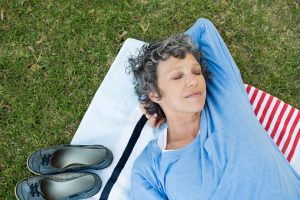
Take a nap or exercise for an instant memory boost
New research, published in the journal Current Biology, suggests that taking a nap or exercising can help you boost your memory. Researchers found exercising four hours after learning something can help you better memorize and recall the new information. The findings tie in with the earlier evidence that regular exercise in general can help improve cognitive function.
Study coauthor Guillén Fernández said, “…[I]t might lead to additional studies optimizing the delay and intensity of post-learning exercise to achieve best study success, which might be relevant for education.”
The study supports the notion that children should partake in after-school activities as a means to retain information. But this trick isn’t just for children, adults can very well benefit from it, too.
For the study, 72 men and women watched 90 photos on a screen for about 40 minutes. The participants were then divided into one of three groups. One group exercised immediately after completing the task. The second group exercised four hours after completing the task, and the third didn’t exercise at all. The groups that exercised took part in a 35-minute interval training session on an exercise bike.
Two days later, the participants completed a test assessing how well they remembered the images. During the test, they were hooked up to MRI scans. The researchers found, exercising immediately after learning had no effect on memory, but a workout session at least four hours after led to a 10 percent increase in memory recollection.
Furthermore, those who exercised later on had greater activity in their hippocampus, the area of the brain responsible for learning and memory.
In a separate study, researchers found an alternative trick for those who do not like to move around – napping. Sara Mednick, a professor of psychology at the University of California, explained, “Sleep helps transform short-term memories into long-term memories by helping make stronger connections between these new experiences and our old memories, that allows the new experiences to be integrated with our general knowledge and understanding of the world.”
For the study, 81 men and women completed word problems in the morning and were also “primed” with unrelated words during a separate exercise. After completing the tasks, 60 participants took a 90-minute nap, while the others watched a video. Heart rate was tracked in napping participants during the rapid eye movement phase to assess the involvement of the autonomic nervous system responsible for the heartbeat.
Later in the day, participants were asked to complete word puzzles once again. The researchers noted that those who took a nap were more likely to use the primed words to answer the questions, suggesting their brains engaged in more flexible thinking. The researchers found a 73 percent performance increase among those who took a nap, compared to those who watched the video.
Both studies reinforce the importance of regular exercise and sleep, and offer new ways to improve the memory. So, the next time you need to remember something, go for a stroll or take a 90-minute nap!